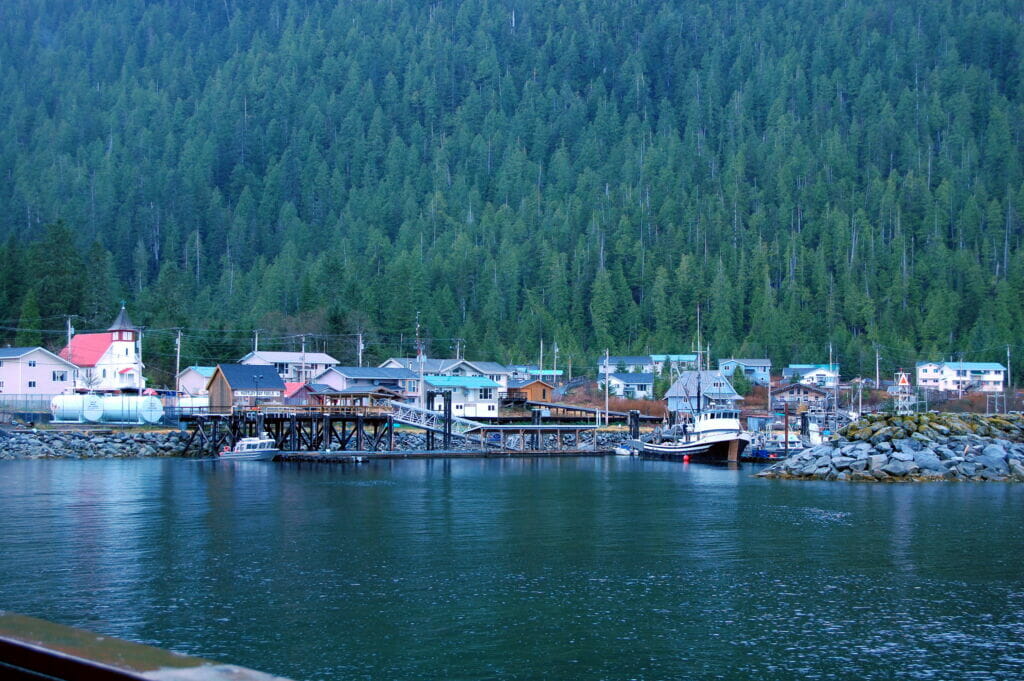Estimated Reading time

4 Mins
First Nations Invest in Community Energy Plans, Renewable Energy Projects

Through the Community Energy Diesel Reduction (CEDR) program, 12 First Nations that rely on diesel for electricity – including eight communities in the Great Bear Rainforest and Haida Gwaii – will receive $7.1 million for community-driven projects to generate clean electricity, increase energy efficiency, and plan for future needs.
Part of the Province of BC’s CleanBC Remote Community Energy Strategy, CEDR is a three-year, $29-million program to help remote communities develop local, sustainable energy sources and reduce their reliance on diesel for electricity. CEDR is delivered by the New Relationship Trust (NRT) in partnership with Coast Funds, with input from a group of advisors with expertise in energy projects.
This month, the Province announced the first round of CEDR project investments, which includes $6.4 million for eight projects led by First Nations in the Great Bear Rainforest and Haida Gwaii. With CEDR support, First Nations on the coast are developing community energy plans, retrofitting homes and community buildings, upgrading local electrical grids, and investing in solar and hydro energy generation and battery storage.
“First Nations are demonstrating leadership in sustainable energy,” says Eddy Adra, Coast Funds CEO. “With CEDR support, communities are investing in projects to generate their own electricity, lower energy costs, and chart a greener path for generations to come.”
As an example, Gitga’at First Nation will invest $2 million in CEDR funding into the design and construction of a 948kW hydroelectric facility that’s forecasted to generate 95 per cent of the community’s electricity needs.
Once built, water from their watershed will flow down a penstock to power turbines in a lower elevation powerhouse. The electricity will travel through a five-kilometre transmission line to power the community. Power generated through the hydro project will be sold to BC Hydro, the community’s current electricity service provider.
With the new source of power, the Gitga’at will be able to meet the community’s – and the provincial and federal governments’ – goals for reducing spill risks, noise pollution, and greenhouse gas emissions; improving the health of community members; increasing economic opportunities; and contributing to water, energy, and food security.
The governmental funding support is a game changer.
The Gitga’at have been planning the hydro project for almost 20 years, says David Benton, the Nation’s clean energy lead. With funding secured, the community can get started on the project: construction of a road to install the elements required for the hydro project is slated to begin this spring.
“The governmental funding support is a game changer,” says Benton. “New Relationship Trust and Coast Funds have structured the CEDR program with staff to assist in preparing support materials, completing applications, and navigating multiple funding programs across governments and departments.”
NRT and Coast Funds are preparing for a second intake of applications for CEDR funding, which will be announced in the coming weeks. There are 44 remote communities in BC that use diesel for some or all of their electricity generation and are eligible to apply for CEDR funding.
For more details on project eligibility and application timelines, visit the CEDR page on the NRT website or email cedr@nrtf.ca.
CEDR Projects in the Great Bear Rainforest and Haida Gwaii
Kwikwasut’inuxw Haxwa’mis First Nation
Funding to update Community Energy Plan, including community engagement, demand-side management analysis, and identifying renewable energy-generation opportunities. ($40,000)
Old Massett Village Council
Funding to update Community Energy Plan, including community engagement and demand-side management analysis. ($40,000)
Heiltsuk Economic Development Corporation
Funding to perform energy audits on 300 homes in Bella Bella to develop a plan for the implementation of shallow and deep building retrofits. ($300,000)
Nuxalk Nation
Funding to perform energy audits on residences to develop a plan for the implementation of shallow and deep building retrofits. ($300,000)
Gitga’at First Nation
Funding for pre-construction and construction activities for a run-of-lake 948-kilowatt hydroelectric generation facility. This project aims to reduce 95% of diesel usage for electricity generation. ($2,000,000)
Kitasoo Xai’xais Nation
Funding for activities to upgrade, repair or replace infrastructure for the community’s electricity distribution grid. ($962,400)
Skidegate Band Council
Skidegate Band Council, Old Massett Village Council, and Council of the Haida Nation have partnered to form Tll Yahda Energy LP, which will develop and construct a two-megawatt Solar Farm on Haida Gwaii’s northern grid and will include battery storage. The project is expected to displace almost 9% of the north grid’s diesel consumption. ($2,000,000)
Ulkatcho First Nation
Funding for pre-construction activities for a proposed 4.4-megawatt solar PV plant and energy-storage facility that is expected to displace as much as 70% of community diesel consumption. ($765,800)
